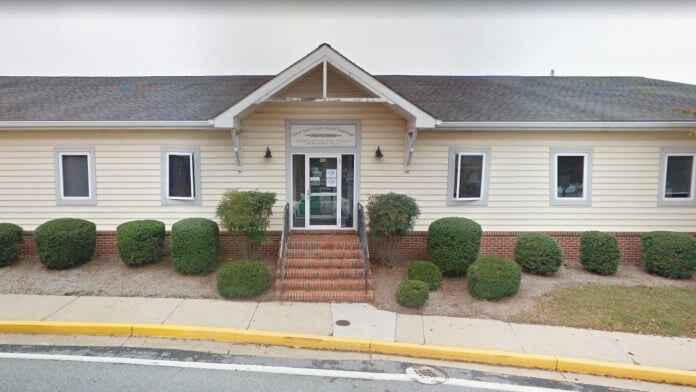About Queen Anne’s County Department of Health – Addictions Treatment and Prevention Services – Centreville
Queen Anne’s County Department of Health provides addiction treatment and prevention services to support residents dealing with substance misuse in Centreville, Maryland. They help County residents achieve recovery through personalized care and community engagement. Services are available for both adults and adolescents seeking treatment assistance.
The facility sits close to Route 213. This makes accessibility easy for folks commuting from nearby towns. The downtown area is easy to navigate, with sidewalks that make it easy to access nearby services.
Centreville is surrounded by serene landscapes. The Chester River for instance creates a calming and peaceful atmosphere. The town is also known for its historic architecture and community-focused culture. This can provide a supportive and welcoming setting for anyone seeking outpatient care.
The facility provides a mix of peer support, clinical and prevention services. Their clinical services include screening and referral to appropriate levels of care depending on your symptoms. You may be referred to community providers offering high-intensity care like medical detox and inpatient rehabilitation. That’s if you’re dealing with a severe symptom.
They may provide or refer you to providers that offer medication assisted treatment (MAT) if you’re dealing with opioid addiction or alcoholism. The MAT technique uses meds to curb cravings and ease withdrawal symptoms. They provide referrals to recovery housing for clients seeking a stable and supportive setting to build life skills that encourage sober living.
Their peer support services include care coordination, community outreach and harm reduction. Harm reduction efforts include training on using Narcan, distributing it to those in need and providing fentanyl test strips to enhance safety. They may offer individual peer support and peer led groups to guide you through your recovery journey.
Prevention services include community education and outreach to promote awareness and support healthier choices. They also host underage drinking and tobacco prevention/education events and campaigns. Safe storage initiatives and connection to treatment providers are all part of the prevention services.
